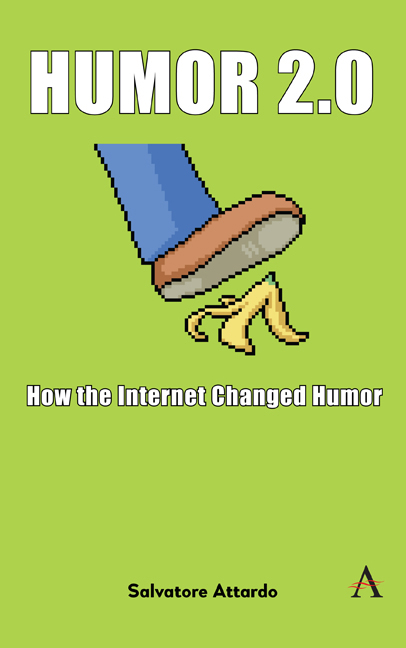11 - Memetic Drift or the Alliteration Arsonist
Published online by Cambridge University Press: 28 February 2024
Summary
In this chapter, we will describe the “Cheryl's she shed” meme cycle. The term “meme cycle” is a deliberate calque on “joke cycle” the term used by folklorists to describe groups of jokes, usually thematically related. The theoretical purpose is to engage the concept of memetic drift, which we introduced in Chapter 2, in more detail and to go beyond it by introducing the idea of semantic bleaching and considering memes as syntactic constructions as the end result of memetic drift.
Joke Cycles
Consider this example:
How many Polacks does it take to screw in a light bulb? Five—one to hold the bulb and four to turn the ceiling (chair). (Dundes, 1987, p. 143)
This was the “original” light bulb joke, variants of which swept the United States in the 1960s and 1970s. Light bulb jokes were centered around the “changing a light bulb” situation, which, as everyone knows, is normally performed by one person climbing on a ladder or chair and manually screwing in the light bulb in the socket. In the jokes, an unusually high number of people were required (e.g., six or seven), which is of course incongruous, and this incongruity was partially (very partially!) justified by the fact that they engaged in a very unorthodox way of doing so, which introduced another incongruity, for example by having one person stand on a table and the other six turning the table (or worse, the ceiling). The invited inference was of course that the group of people changing a light bulb in such an inefficient and counterintuitive way must be stupid, which was confirmed by the mention of the ethnicity of the group (Polish, in the original joke). The stereotype for stupidity was thus both confirmed and served as resolution (justification) of the incongruous behavior. I discuss light bulb jokes in some detail in Attardo (2001). For the shallow nature of such groupings, see Hempelmann (2003).
What made lightbulb jokes interesting to me, as a linguist, was not so much that these jokes targeted originally Polish-Americans, and the reasons behind this and other ethnic jokes, masterfully explored in Davies (1990).
- Type
- Chapter
- Information
- Humor 2.0How the Internet Changed Humor, pp. 111 - 122Publisher: Anthem PressPrint publication year: 2023

